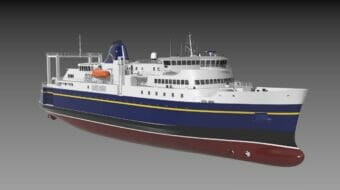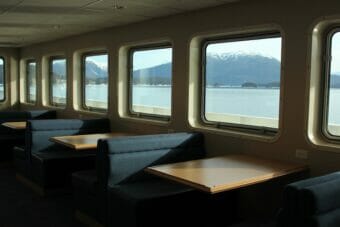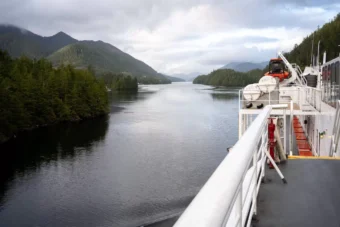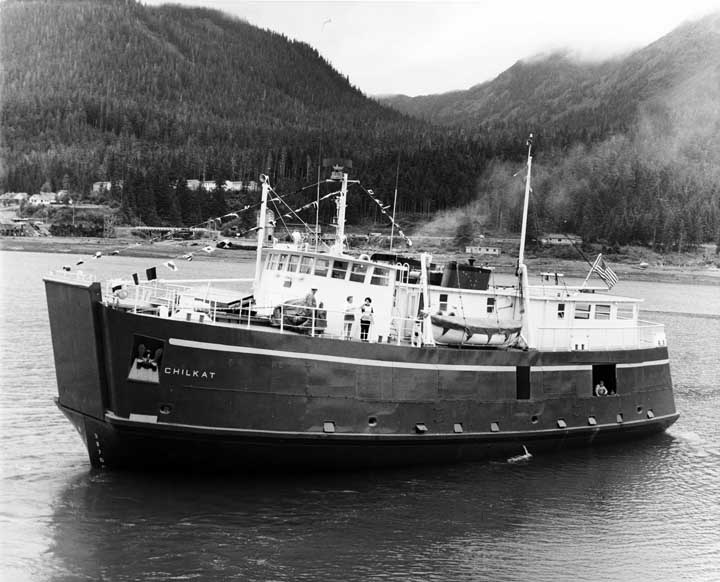
Alaska’s first state ferry — the Chilkat — broke free of its moorings on Wednesday and sank during a windstorm in Anacortes, Washington. Although long retired from passenger service, some still remember the ship as the first “blue canoe.”
A video caught the sights and sounds of the Chilkat’s final moments being battered in high winds. At some point, the 64-year-old ferry broke free from its moorings. It rolled over on its starboard side. In less than a minute, Chilkat founders with it keel to the sky.
“We had a pretty big storm system blow through the Seattle area, causing winds and gusts up to 50 knots. And from the storm, one of the concrete piers in Anacortes, Washington sunk,” said Petty Officer Steve Strohmaier, a U.S. Coast Guard spokesman in Seattle.
Strohmaier said three boats broke free in the storm. But only the 99-foot former ferry sank.
“We have a commercial salvage company that will be coming out and assisting with recovery efforts of the vessel,” he added. “When and how long that will take is unknown at the time.”
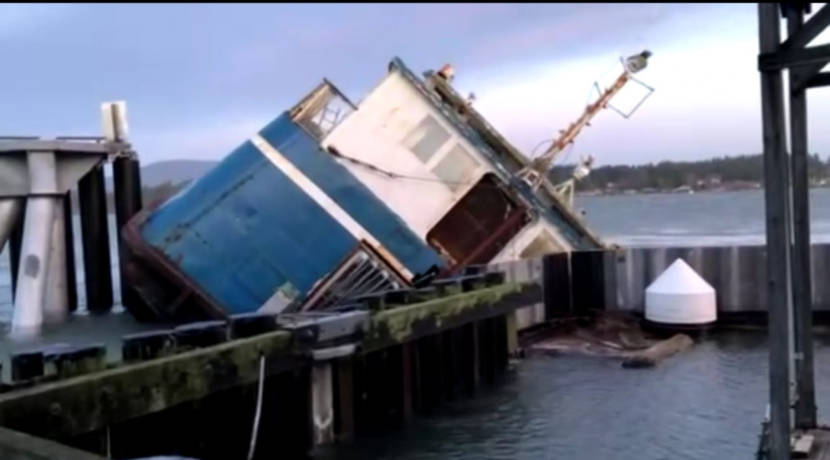
The Chilkat was out of service for some time. In 1988, the state sold it to a seafood company as a scallop tender. But for decades, it was a workhorse in Southeast Alaska, entering service in 1957 as the territory’s first purpose-built passenger ferry.
The Chilkat replaced a surplus military landing craft with a similar name that did runs between Haines and the territorial capital Juneau, said Southeast Conference Executive Director Robert Venables.
“The Chilkat was the actual very first ferry as part of the marine highway system fleet that began in 1963 after the statewide vote to bond for the new boats and begin the state-sponsored service,” Venables said. “The Chilkat was the Queen of the Fleet.”
The ferry could carry 59 passengers and 15 vehicles and regularly plied the waters of Lynn Canal running a daily service between Skagway, Haines and Juneau. Later, it shuttled between Ketchikan and Annette Island.
Painted blue and gold, the Chilkat was the Alaska Marine Highway System’s original “blue canoe” and a key piece of the region’s history.
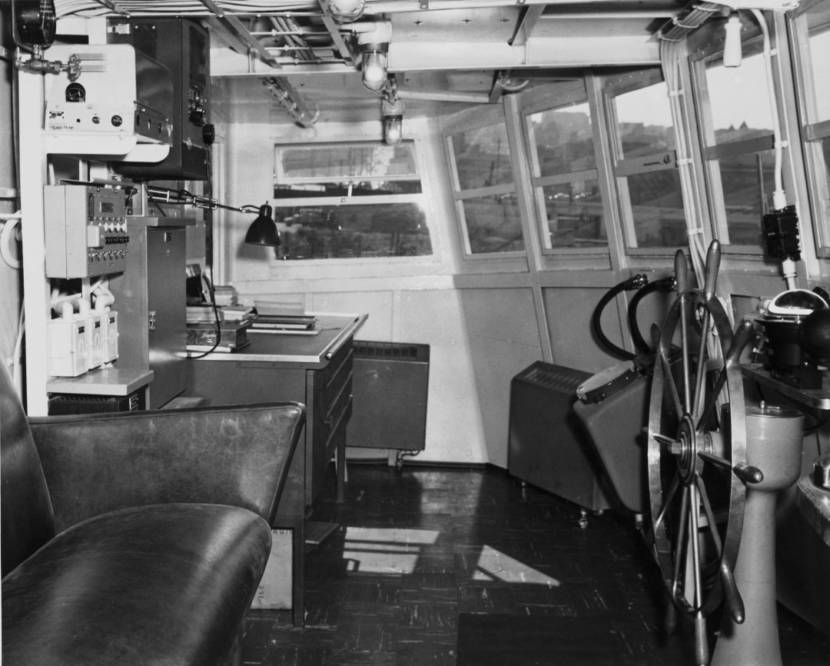
Venables said he watched the video of the ferry sinking a few times.
“It’s just sad,” Venables said. “You just kind of hate to see a vessel go down like that.”
The Coast Guard said the Chilkat didn’t have any fuel or other pollutants on board, having been out of service for some time. The owner of the boatyard posted a statement saying it was one of the worst storms seen and years and that there are plans to raise the vessel.
